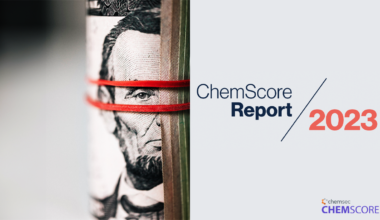Today, the Supreme Court overrode the Court of Appeal’s verdict and ruled in favour of the residents affected by PFAS-contaminated drinking water in the Swedish towns of Kallinge and Ronneby. The ruling means that the 150 affected individuals are now entitled to compensation.
“The residents have, through drinking water, been exposed to high levels of PFAS in the blood, leading to an increased risk of certain negative health effects and diseases”, says Supreme Court judge Jonas Malmberg in a statement.
“At least two million Swedes have excessive levels of PFAS in their drinking water”
“The court’s assessment is that the high levels of PFAS in the residents’ blood represent such a considerable physical deterioration of their bodies that they have suffered a physical defect state, which in terms of compensation law is a personal injury”, he concludes.
Not an isolated incident
But Ronneby isn’t the only Swedish municipality affected by high levels of PFAS in drinking water. In several locations, the levels are so high that merely by drinking the water, one ingests more PFAS than the EFSA (European Food Safety Authority) deems safe to intake from water, food, and air combined.
This concerning fact was revealed in a study of PFAS levels in drinking water across Sweden by the Swedish Society for Nature Conservation earlier this year. The investigation also revealed that PFAS chemicals are present in over half of the country’s drinking water and that at least two million Swedes have excessive levels of PFAS in their drinking water.
“People may now feel more confident about seeking compensation for the harm PFAS has caused”
Another legal case already underway
One of the affected sites is Sweden’s fourth largest city — Uppsala. In 2012, high PFAS levels were detected in the city’s drinking water. During the last decade, the drinking water has had around 25 nanograms of PFAS per litre when it reaches the taps of Uppsala residents — after a water purification process. This is significantly above the drinking water recommendations of 4 ng/l set by the Swedish National Food Agency.
A subsequent investigation traced the contamination to a military airstrip nearby. This led the municipality and its local water supplier to file a lawsuit against the Swedish military in 2019, seeking compensation for the increased water treatment costs that are currently borne by Uppsala taxpayers.
Get the latest PFAS news!
Subscribe to our newsletter.
Two years later, the military was deemed not responsible for the contamination. But the case is now up for appeal in the High Court.
Will the court ruling lead to more PFAS lawsuits?
The court victory in the Ronneby case could prove to be a pivotal moment in the larger fight against PFAS contamination, both in Sweden and elsewhere. As news spreads about the successful court case, it may encourage more people to file lawsuits related to PFAS.
The court’s decision sets a precedent, showing that legal actions can make those responsible for PFAS pollution answer for their actions. People and local governments, inspired by this example, may now feel more confident about seeking compensation for the harm PFAS has caused to the environment and health.





